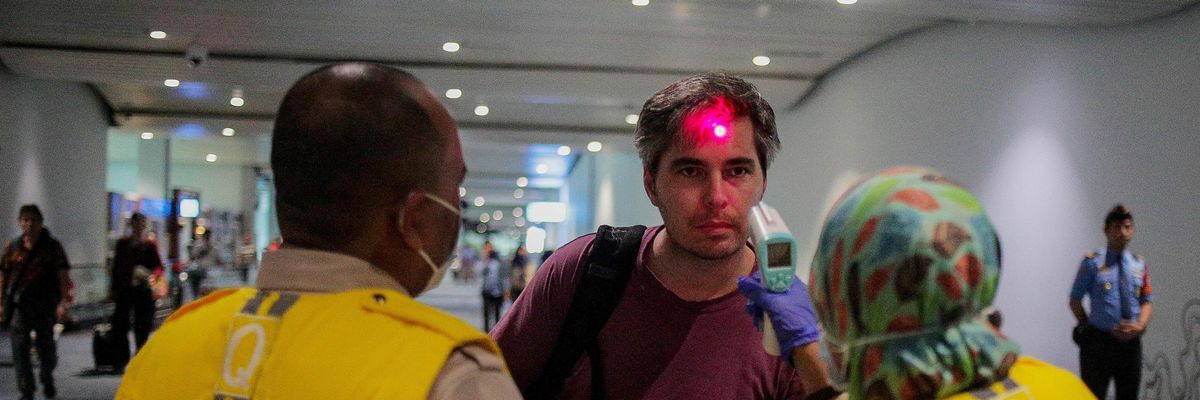The World Health Organization plans to hold an emergency meeting on Friday to discuss the international transmission of monkeypox.
New cases of the viral zoonotic disease, which is rare and typically confined to central and west Africa, have been detected in Australia, Belgium, Canada, France, Germany, Italy, Portugal, Spain, Sweden, the United Kingdom, and the United States.
In the U.K. alone, the number of confirmed cases more than doubled on Friday to 20, raising fears that the virus could be spreading undetected through the community.
According to the Telegraph, the main topics of conversation at the WHO-convened meeting are expected to include "how the virus is being spread, the unusually high prevalence in gay and bisexual men, and also the vaccination situation."
The British newspaper continued:
One potential course of action to be raised will be whether vaccination with the smallpox vaccine made by Bavarian Nordic, known as Jynneos in the U.S. and Imvanex in the U.K., should be used for contacts of people known to be infected.
The vaccine is only approved in the U.K. for protection against smallpox--despite the virus being eliminated since 1980--but can be used "off-license" to protect against monkeypox.
Data show the vaccine, which is the only non-replicating virus in the world for smallpox or monkeypox, reduces a person's risk of disease by 85%.
If a person receives the jab within four days of infection, the vaccine can modify the course of the infection and improve their prognosis.
British officials have ordered 20,000 doses of the smallpox vaccine to help protect people who may have been exposed to monkeypox.
Dr. Anne Rimoin, professor of epidemiology at the University of California, Los Angeles and a world-renowned monkeypox expert, told the Telegraph that vaccinating close contacts of confirmed cases, also known as ring vaccination, is a good starting point.
"We do have a vaccine that works but I doubt that we will need widespread vaccination, but ring vaccination may be a relevant strategy," she said. "It was a very relevant strategy for smallpox. It is how we eradicated smallpox."
Rimoin, who began studying monkeypox in the Democratic Republic of the Congo in 2002, said that "now, 20 years later, the vast majority of the world has no immunity to poxviruses."
"The big issue is that now the world is no longer, by and large, immune to poxviruses, we'll see more cases," she added. "As the world becomes more susceptible to poxviruses and we have exposures over time, you know, because of increased travel rate, etc., we can expect to see more cases."
It is recommended that individuals exhibiting symptoms of monkeypox--which include rashes and fever--seek immediate medical advice and contact clinics before visiting.
The WHO says it has been discussing monkeypox with experts from affected countries on a daily basis. In addition, health authorities in Australia, Europe, and the U.S. are investigating the ongoing outbreak.
The committee due to meet on Friday is the Strategic and Technical Advisory Group on Infectious Hazards with Pandemic and Epidemic Potential (STAG-IH), which "advises WHO on infection risks that could pose a threat to global health," Reutersreported.
Dr. Soce Fall, WHO assistant director-general of emergencies response, said during another meeting earlier this week that "the most important thing is we really need to invest in understanding the development of monkeypox because we have so many unknowns in terms of the dynamics of transmission, the clinical features, the epidemiology."
"In terms of therapeutics and diagnostics also, we still have important gaps," she added.

